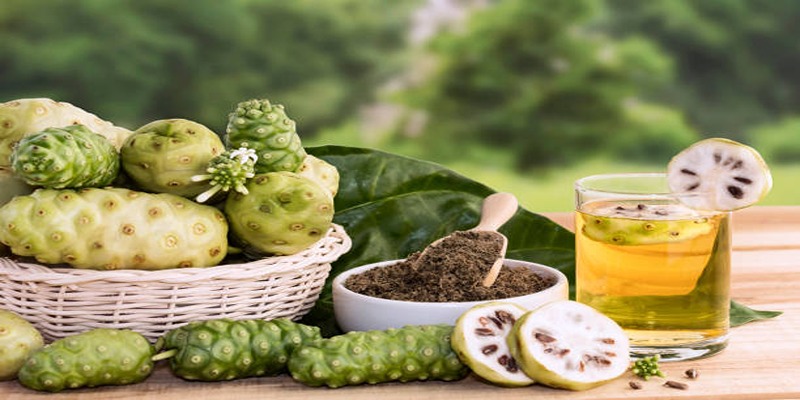Fermentation is a natural process where microorganisms like bacteria and yeast break down sugars, transforming them into alcohol, acids, or gases. This ancient technique is widely used in creating diverse foods and beverages, from yogurt to kombucha. Beyond flavor, fermentation boosts nutritional value and supports digestive health by promoting beneficial gut bacteria.
What Is Fermentation?

Fermentation is a natural occurring metabolism process, whereby, microorganisms convert sugars and starches into simpler compounds such as acids, or gases. Application In relation to food, the main purposes of fermentation are to promote preservation, texture, flavor and nutritional value.
There are several types of fermentation, but the most common in food production include:
- Lactic acid fermentation: Converts sugars into lactic acid. Found in yogurt, pickles, and sauerkraut.
- Acetic acid fermentation: Produces acetic acid (vinegar alternatives).
- Ethanol fermentation in baking and non-alcoholic food fermentation.
The key to safe and beneficial fermentation lies in a controlled environment where beneficial microbes outcompete any potentially harmful ones.
Fermented Foods and Their Benefits:
Fermented foods are diverse and vary across cultures. Common examples include:
- Yogurt: Made by fermenting milk with lactic acid bacteria.
- Sauerkraut: Finely cut cabbage fermented by lactic acid bacteria.
- Kimchi: A Korean staple made from fermented vegetables and spices.
- Kefir: A fermented milk beverage rich in beneficial microorganisms.
- Miso and tempeh: Fermented soybean products that offer plant-based nutrition.
These foods not only have extended shelf lives but also carry significant health benefits due to their live cultures and altered nutrient profiles.
The Role of Fermentation in Nutritional Enhancement:
Fermentation transforms foods at a biochemical level, improving their nutritional value. Here’s how:
1. Improved Nutrient Absorption
Fermentation breaks down compounds that can interfere with the body’s ability to absorb nutrients. For example, phytic acid, commonly found in grains and legumes, can bind minerals and reduce their availability. Fermentation reduces phytic acid levels, allowing for better absorption of iron, zinc, and magnesium.
2. Boosted B-Vitamins
Certain fermented foods are rich in B-vitamins like B2 (riboflavin) and B12. These vitamins are essential for energy metabolism and nervous system function. Microorganisms involved in fermentation often produce these vitamins naturally.
3. Enhanced Protein Digestibility
In products like tempeh or fermented dairy, proteins are partially broken down into peptides and amino acids, making them easier for the digestive system to process and absorb.
Fermentation and Digestive Health:
One of the most studied benefits of fermentation is its positive effect on the digestive system. This is largely due to the presence of live beneficial microorganisms known as probiotics.
1. Supports Gut Microbiome Balance
The human digestive system houses trillions of microorganisms, collectively known as the gut microbiome. A balanced microbiome is essential for healthy digestion, immune function, and even mood regulation. Fermented foods can help maintain this balance by introducing beneficial bacteria that crowd out undesirable species.
2. Aids in Digestive Enzyme Production
Fermented foods can stimulate the production of digestive enzymes, which help break down food more efficiently. For individuals who experience occasional bloating or indigestion, incorporating fermented foods into meals can offer relief by improving digestive efficiency.
3. Improves Bowel Regularity
By supporting the growth of beneficial gut bacteria, fermented foods may help improve bowel movements. A healthy microbiome promotes better motility in the intestines and can contribute to smoother, more regular elimination.
Potential Concerns and Considerations:
While fermented foods offer many benefits, it’s important to approach them with mindfulness:
- Quality Matters: Not all store-bought fermented products contain live cultures. Some are heat-treated after fermentation. Look for labels that mention “live and active cultures.”
- Salt Content: Fermented vegetables like pickles and sauerkraut may be high in sodium. Moderate consumption is advisable, especially for individuals watching their salt intake.
- Digestive Sensitivity: Some people may experience mild bloating when first introducing fermented foods. Starting with small portions and gradually increasing intake allows the digestive system to adjust.
Homemade vs. Commercial Fermented Foods:

Making fermented foods at home is a growing trend, offering full control over ingredients and fermentation duration. Popular home-fermented options include:
- Vegetables (e.g., carrots, beets): Packed with essential vitamins and fiber, these veggies are great for snacking, roasting, or adding to your favorite meals.
- Non-dairy yogurt alternatives: Creamy and delicious options made from almond, coconut, or oat milk, perfect for those avoiding dairy or looking for plant-based choices.
- Fermented oatmeal or grains: Nutrient-rich and gut-friendly, these grains are soaked and fermented to enhance digestion and add a tangy flavor to your breakfast or snacks.
However, proper hygiene and attention to food safety are essential to prevent spoilage. Using clean utensils, sterile jars, and following trusted recipes minimizes risk and ensures beneficial fermentation.
The Science Behind Fermentation:
At a cellular level, fermentation is an anaerobic process, meaning it occurs without oxygen. Microorganisms like Lactobacillus and Bifidobacteria thrive in these environments, converting sugars into useful compounds such as lactic acid. This acid lowers the pH of food, preserving it and creating a tangy flavor.
These microbes can also interact with the body’s immune cells, potentially enhancing the body’s natural defense mechanisms through the gut-associated lymphoid tissue, which plays a crucial role in immunity.
Incorporating Fermented Foods Into Your Diet:
Adding fermented foods to your meals doesn’t have to be complicated. Here are a few simple tips:
- Start your day with a nutritious breakfast by using yogurt or kefir as a base. These probiotic-rich options pair perfectly with fresh fruit, granola, or nuts for a wholesome and gut-friendly meal.
- Boost the flavor and health benefits of your meals by adding a spoonful of sauerkraut or kimchi to salads, grain bowls, or even sandwiches. These fermented foods not only enhance the taste but also provide a natural source of probiotics.
- Experiment with fermented sauces or condiments, such as miso paste, in your cooking. They can be used to create delicious dressings, marinades, and even soups, adding depth of flavor and supporting gut health.
- Instead of reaching for sugary snacks, try swapping them out for small servings of naturally fermented alternatives, like pickled vegetables or kombucha. These options are both satisfying and beneficial for your digestive system.
Balance is key—there’s no need to overconsume. A small daily portion can contribute meaningfully to digestive wellness.
Conclusion:
Fermentation is much more than a culinary tradition—it’s a scientifically supported method for enhancing food and digestive health. From boosting nutrient absorption to promoting a balanced gut microbiome, the benefits of fermented foods are both practical and profound. As research continues, we may uncover even more about how these tiny microorganisms play a mighty role in human health. For now, incorporating a variety of fermented foods into your diet can be a simple, natural way to support digestion and overall well-being.












